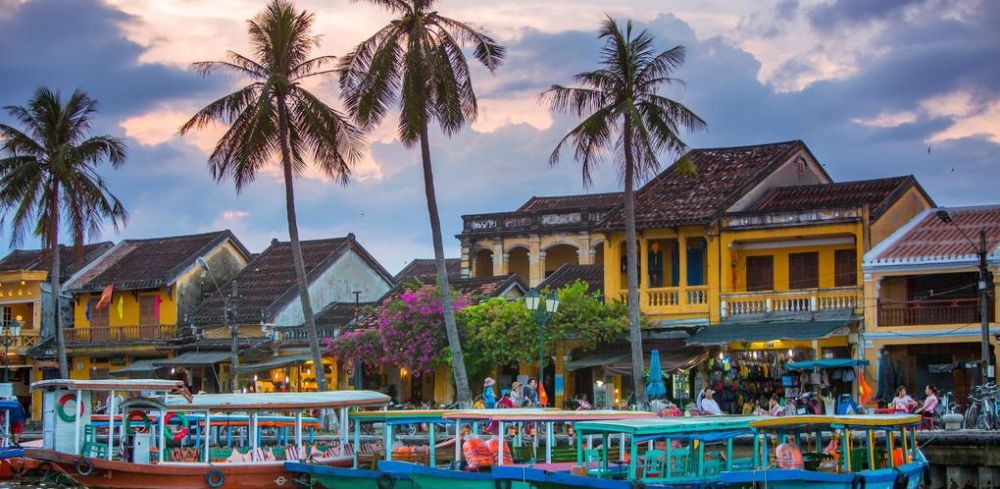

Hoi An, a UNESCO World Heritage Site, is a small city in the central Vietnam province of Quang Nam. It is renowned for its well-preserved Ancient Town with roots dating back to the 15th century when it was a bustling trade port. Historically, Hoi An's significance declined as trade routes shifted, leading to centuries of preservation and a relatively undisturbed architectural heritage.
International tourism in Hoi An started to flourish in the 1990s after the declaration of the city's Ancient Town as a World Heritage Site in 1999. This recognition spurred the restoration of old buildings and the implementation of conservation policies that protected Hoi An from overdevelopment that many other cities experienced.
As interest in the city grew, so did the need for infrastructure to support the increasing number of visitors. Hotels, restaurants, and other tourist services began to rise, albeit under strict regulation to maintain the city's old charm. Despite these developments, Hoi An has managed to keep its small-town feel, which remains one of its biggest attractions.
Central to Hoi An's tourism appeal is its compelling story of cultural exchange and preservation. Tourists flock to Hoi An not only for its physical beauty but also to immerse themselves in the history and culture that is evident in the city's architecture, cuisine, and traditions, which are a blend of indigenous and foreign influences.
In recent years, sustainable tourism has become a strong trend in Hoi An. The city encourages environmentally friendly practices and has implemented several initiatives such as banning plastic bags and encouraging cycling as a primary means of transport within the Old Town.
Culinary tourism has also taken off, with Vietnamese cuisine being celebrated worldwide, visitors come to Hoi independent food tours, cooking classes, and street food experiences. These activities provide a deeper understanding of the local culture and livelihoods.
Another trend is the rise of bespoke experiences and cultural immersion. Travelers are increasingly seeking authentic, personalized activities, such as joining traditional lantern making workshops or clothing tailor services for which Hoi An is also famous.
Hoi An remains a prime example of how cities can develop tourism while preserving their unique heritage and traditions. Its history of attracting international visitors has only added to the rich tapestry that makes Hoi An a timeless destination.